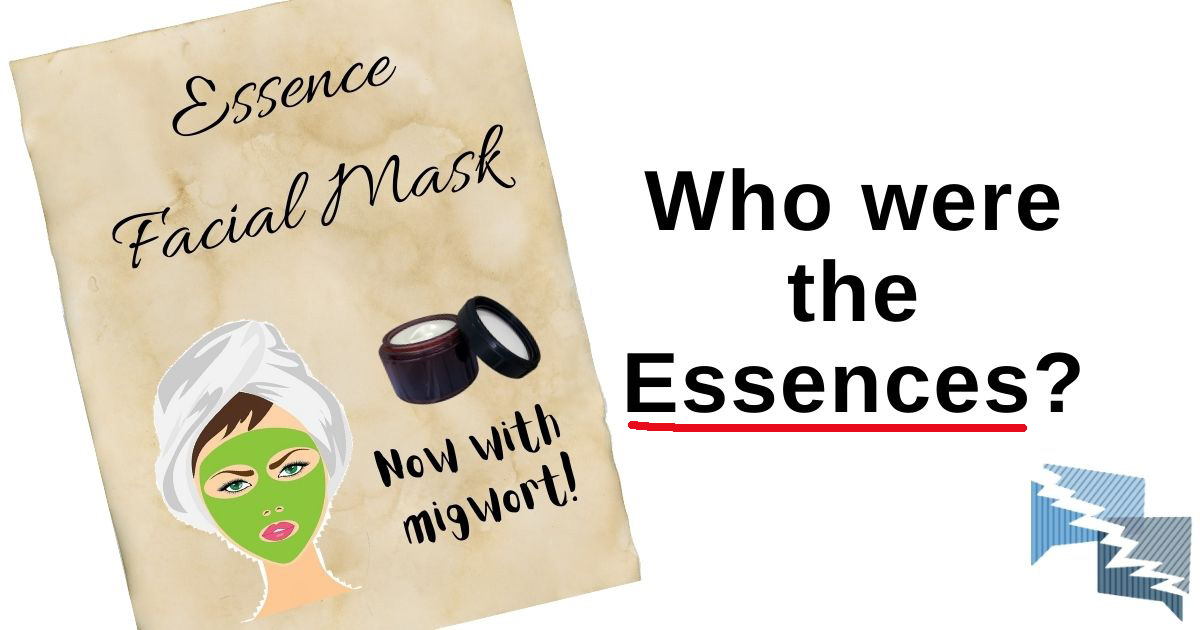
Who were the Essences?
You may recall the story of Joseph of Aromatherapy, he who discovered the money-making potential of essential oils. It was Joseph who realized he could buy herbs and spices and sell them to middlemen who would use them to make an oil infusion to sell in their local towns. These middlemen could also sell some of the raw herbs to others, who could sell them to others, resulting in Joseph having a lot of money.
The Essences, who pre-date Joseph, were a co-op that used a less predatory, more nurturing business model to support their community. The Essences didn't travel that much, and they didn't have the money to buy aloe and myrrh, but the arid hills around their towns grew thorny keel, migwort, and zygrophyllum. They had no olive trees, but the Dead Sea provided salt and mud that made great scrubs, masks, and bath bombs, which the Essences wrapped in thin sheets of goat skin.
They had a pretty good business going. The Sadducees and whatever foreign occupiers were around that year always had extra cash for luxury items. Until, however, the Maccabean Revolt. The more power the Maccabean family gained, the fewer foreign rulers came around to buy the Essences' scrubs and masks. In addition, the group was swept up in the national and religious fervor. Their interests pivoted from skin care to an intense devotion to God that made the Pharisees look like Sadducees. They shut down production and used their goat skins to make copies of Jewish Scripture, commentaries, and other literary works.
The story of the Essences is not well known. Although they were meticulous in their work copying Scriptures, they were less concerned with their public image. Before long, most had forgotten their early start in the luxury skin care business, although they did maintain their habit of regular bathing in the river. Even the spelling of their name became uncertain; somewhere along the line, they dropped the "c," and by the time John the Baptist came along, they were known as the Essenes.
The Essences, who pre-date Joseph, were a co-op that used a less predatory, more nurturing business model to support their community. The Essences didn't travel that much, and they didn't have the money to buy aloe and myrrh, but the arid hills around their towns grew thorny keel, migwort, and zygrophyllum. They had no olive trees, but the Dead Sea provided salt and mud that made great scrubs, masks, and bath bombs, which the Essences wrapped in thin sheets of goat skin.
They had a pretty good business going. The Sadducees and whatever foreign occupiers were around that year always had extra cash for luxury items. Until, however, the Maccabean Revolt. The more power the Maccabean family gained, the fewer foreign rulers came around to buy the Essences' scrubs and masks. In addition, the group was swept up in the national and religious fervor. Their interests pivoted from skin care to an intense devotion to God that made the Pharisees look like Sadducees. They shut down production and used their goat skins to make copies of Jewish Scripture, commentaries, and other literary works.
The story of the Essences is not well known. Although they were meticulous in their work copying Scriptures, they were less concerned with their public image. Before long, most had forgotten their early start in the luxury skin care business, although they did maintain their habit of regular bathing in the river. Even the spelling of their name became uncertain; somewhere along the line, they dropped the "c," and by the time John the Baptist came along, they were known as the Essenes.
This is what WOULD happen if GotQuestions.org genuinely, honestly answered all the mis-typed, autocorrected, or otherwise altered "spiritual" questions that come their way every day.
HOME | ABOUT | CATEGORIES | CONTACT | THE REAL SITE
© 2024 Got Questions Ministries. All rights reserved.

